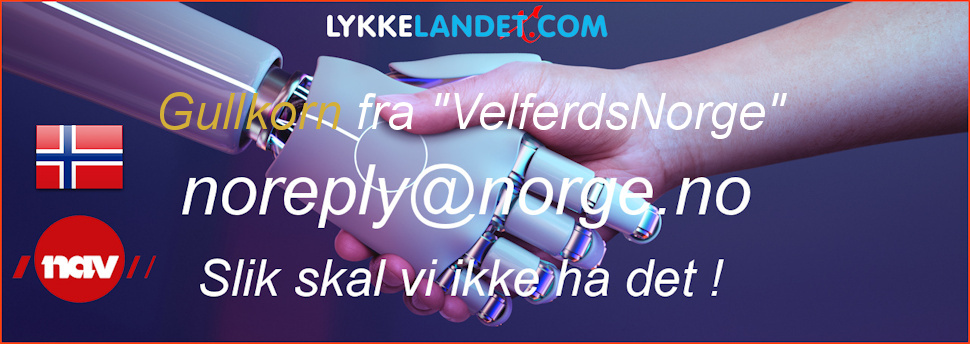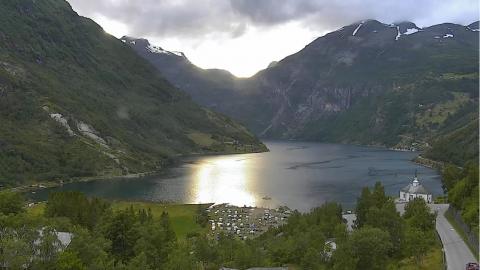Norway, country of northern Europe that occupies the western half of the Scandinavian peninsula. Nearly half of the inhabitants of the country live in the far south, in the region around Oslo, the capital. About two-thirds of Norway is mountainous, and off its much-indented coastline lie, carved by deep glacial fjords, some 50,000 islands.
Norway
Norway
Indo-European peoples settled Norway’s coast in antiquity, establishing a permanent settlement near the present capital of Oslo some 6,000 years ago. The interior was more sparsely settled, owing to extremes of climate and difficult terrain, and even today the country’s population is concentrated in coastal cities such as Bergen and Trondheim. Dependent on fishing and farming, early Norwegians developed a seafaring tradition that would reach its apex in the Viking era, when Norse warriors regularly raided the British Isles, the coasts of western Europe, and even the interior of Russia; the Vikings also established colonies in Iceland and Greenland and explored the coast of North America (which Leif Eriksson called Vinland) more than a thousand years ago. This great tradition of exploration by such explorers as Leif Erikkson and his father, Erik the Red, continued into modern times, exemplified by such men as Fridtjof Nansen, Roald Amundsen, and Thor Heyerdahl. Weakened by plague and economic deterioration in the late Middle Ages and dominated by neighbouring Denmark and Sweden, Norwegians turned to trading in fish and lumber, and modern Norway, which gained its independence in 1905, emerged as a major maritime transporter of the world’s goods as well as a world leader in specialized shipbuilding. In the 1970s the exploitation of offshore oil and natural gas became the major maritime industry, with Norway emerging in the 1990s as one of the world’s leading petroleum exporters.
Lying on the northern outskirts of the European continent and thus avoiding the characteristics of a geographic crossroads, Norway (the “northern way”) has maintained a great homogeneity among its peoples and their way of life. Small enclaves of immigrants, mostly from southeastern Europe and South Asia, established themselves in the Oslo region in the late 20th century, but the overwhelming majority of the country’s inhabitants are ethnically Nordic. The northern part of the country, particularly the rugged Finnmark Plateau, is home to the Sami (also called Lapps or Laplanders), a Uralic people whose origins are obscure. Life expectancy rates in Norway are among the highest in the world. The main political division reflects differing views on the importance of free-market forces; but the socialists long ago stopped insisting on nationalization of the country’s industry, and the nonsocialists have accepted extensive governmental control of the country’s economy. Such evident national consensus—along with abundant waterpower, offshore oil, and peaceful labour relations—was a major factor in the rapid growth of Norway as an industrial nation during the 20th century and in the creation of one of the highest standards of living in the world, reinforced by a comprehensive social welfare system.
4k video,4k video 60fps,video 4k,4k,4k videos,relax 4k,piano,ultra hd,piano music,bgm,background music,focus,soothing relaxation,calm,soothing,music,beautiful piano music,piano relax,piano relaxing,relaxing music,nature sounds,paradise,paradise relaxation film,paradise relaxation,relaxation film,calming music,stress relief,paradise 4k video,paradise island,paradise 4k,paradise untra hd,paradise travel,4k nature,4k 60fps hdr,island paradise
Norway
Norway
Indo-European peoples settled Norway’s coast in antiquity, establishing a permanent settlement near the present capital of Oslo some 6,000 years ago. The interior was more sparsely settled, owing to extremes of climate and difficult terrain, and even today the country’s population is concentrated in coastal cities such as Bergen and Trondheim. Dependent on fishing and farming, early Norwegians developed a seafaring tradition that would reach its apex in the Viking era, when Norse warriors regularly raided the British Isles, the coasts of western Europe, and even the interior of Russia; the Vikings also established colonies in Iceland and Greenland and explored the coast of North America (which Leif Eriksson called Vinland) more than a thousand years ago. This great tradition of exploration by such explorers as Leif Erikkson and his father, Erik the Red, continued into modern times, exemplified by such men as Fridtjof Nansen, Roald Amundsen, and Thor Heyerdahl. Weakened by plague and economic deterioration in the late Middle Ages and dominated by neighbouring Denmark and Sweden, Norwegians turned to trading in fish and lumber, and modern Norway, which gained its independence in 1905, emerged as a major maritime transporter of the world’s goods as well as a world leader in specialized shipbuilding. In the 1970s the exploitation of offshore oil and natural gas became the major maritime industry, with Norway emerging in the 1990s as one of the world’s leading petroleum exporters.
Lying on the northern outskirts of the European continent and thus avoiding the characteristics of a geographic crossroads, Norway (the “northern way”) has maintained a great homogeneity among its peoples and their way of life. Small enclaves of immigrants, mostly from southeastern Europe and South Asia, established themselves in the Oslo region in the late 20th century, but the overwhelming majority of the country’s inhabitants are ethnically Nordic. The northern part of the country, particularly the rugged Finnmark Plateau, is home to the Sami (also called Lapps or Laplanders), a Uralic people whose origins are obscure. Life expectancy rates in Norway are among the highest in the world. The main political division reflects differing views on the importance of free-market forces; but the socialists long ago stopped insisting on nationalization of the country’s industry, and the nonsocialists have accepted extensive governmental control of the country’s economy. Such evident national consensus—along with abundant waterpower, offshore oil, and peaceful labour relations—was a major factor in the rapid growth of Norway as an industrial nation during the 20th century and in the creation of one of the highest standards of living in the world, reinforced by a comprehensive social welfare system.
4k video,4k video 60fps,video 4k,4k,4k videos,relax 4k,piano,ultra hd,piano music,bgm,background music,focus,soothing relaxation,calm,soothing,music,beautiful piano music,piano relax,piano relaxing,relaxing music,nature sounds,paradise,paradise relaxation film,paradise relaxation,relaxation film,calming music,stress relief,paradise 4k video,paradise island,paradise 4k,paradise untra hd,paradise travel,4k nature,4k 60fps hdr,island paradise
- Category
- NORDKAPP
Commenting disabled.








